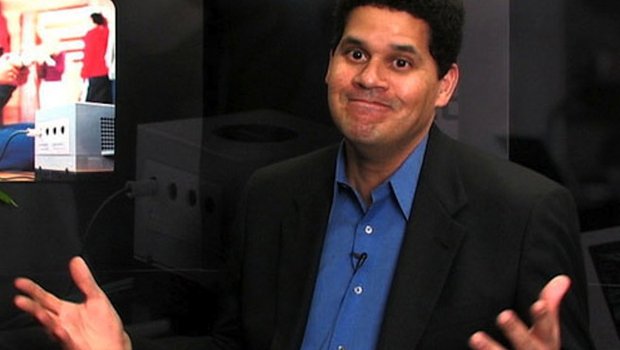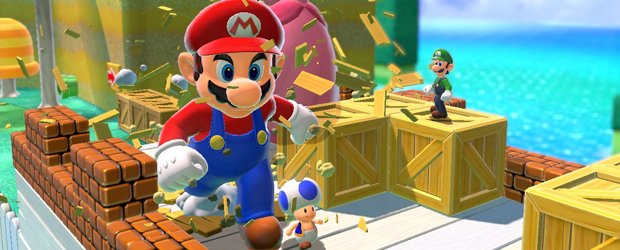Nintendo's next-gen problem is a lack of games, not a lack of power
Earlier this week, Nintendo's Reggie Fils-Aime cited history as a way to defend the Wii U's position against the oncoming Xbox One and PS4. In an interview with Forbes, he said, "The interesting thing there is, if you look at the last two hardware cycles, it was not the most powerful machine that won, not in the case of the PS2, not in the case of the Wii."
And he's not wrong. The PS2 sold 150 million units worldwide, making it the best-selling console of all time, and the Wii, despite being significantly less powerful than its HD competition, sold over 100 million units (for reference, the second-place PS3 is at about 80 million units through October 2013). But for Nintendo to have any chance in this battle, it's going to have to start actually producing games, and giving people real reasons to pick up the system.

Make no mistake: The Wii U is mere months away from being in third place in a three-man race, despite getting a year-long head start. While technically in the lead as of now, Nintendo only managed to ship 4 million systems in the first year--a number that both Sony and Microsoft are on track to outpace. Nintendo had a year head start and spent it jogging at a leisurely pace, and now Microsoft and Sony are flying by on motorcycles.
But more importantly, Reggie's logic is as full of holes as a dalmation (wait, those are spots? Whatever.) Pointing out that the least powerful hardware won for the past two generations is like saying that Top Ramen is the best food in the world because it sells like crazy. Sure, it's technically true that the least-powerful system was also the best-selling, but those two things aren't actually as connected as it might seem. Correlation does not imply causation, and the lack of power isn't actually related to the success--it's all about the games.
The PS2 launched in 2000, and by the end of 2001 it had SSX, Metal Gear Solid 2: Sons of Liberty, Silent Hill 2, Final Fantasy X, Devil May Cry, ICO, Gran Turismo 3: A-Spec, and Grand Theft Auto 3. That's an incredible first year--seriously, I can't even think of an analogy that can compare. Pixar? The Beatles? Is there even something that works for this? And while the Wii wasn't a harbinger of hits like the PS2 was, it still had a fair share of massive successes. It had The Legend of Zelda: Twilight Princess, Metroid Prime 3, Mario Galaxy, and, of course, Wii Sports.

Jump to the Wii U and… well… it's rough. After 12 months you're looking at a system that has just enough games to justify a purchase. Pikmin 3 and New Super Mario 3D World managed to tip it over the edge, but only by a little, and now it's in a weird place. Early next year the PS4 gets the huge, AAA inFamous: Second Son, and the Xbox One gets the huge, AAA Titanfall. What is Nintendo combating that with? Another Donkey Kong Country? That's… mostly it.
The horizon isn't particularly compelling, either. Microsoft has the grand promise of a new Master Chief outing and Sony is teasing a fourth date with Nathan Drake (that's when he puts out, btw). Nintendo's trio of Mario Kart, Bayonetta, and Smash Bros, while admirable, are unlikely to secure any kind of knock-out punch. The Wii U is falling behind in the area it has absolutely no reason to be falling behind in: games. As of this moment there's no Zelda on the horizon, no Star Fox, no Metroid, no astounding third-party games, and no reason to be too optimistic about Nintendo's 2014.
Sign up to the GamesRadar+ Newsletter
Weekly digests, tales from the communities you love, and more
Reggie is right in saying that the Wii U's lack of next-gen oomph isn't enough to disqualify it, but the problem is deeper than that. This weekend, when Reggie takes the stage at the Spike TV VGXs to talk about the Wii U, he'd better bring something big, otherwise the console is going to fade into obscurity, regardless of its processors or its predecessors.
Hollander Cooper was the Lead Features Editor of GamesRadar+ between 2011 and 2014. After that lengthy stint managing GR's editorial calendar he moved behind the curtain and into the video game industry itself, working as social media manager for EA and as a communications lead at Riot Games. Hollander is currently stationed at Apple as an organic social lead for the App Store and Apple Arcade.



